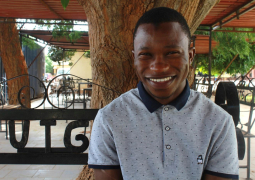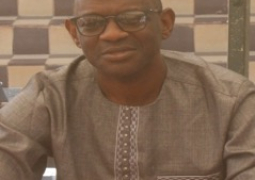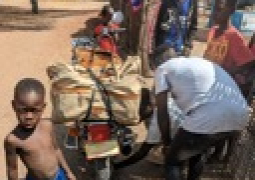The birth of January 2023 marked six years since former president Yahya Jammeh fled The Gambia for Equatorial Guinea following a shocking electoral defeat at the hands of the opposition coalition led by Adama Barrow. This highly anticipated political transition brought about a luxurious freedom that allowed the country to embark on a transitional justice process led by the Truth Reconciliation and Reparations Commission (TRRC). This organization that is perfectly synonymous to restorative justice ran a keen observation and concocted a historical record of the violations and vituperations of human rights imparted during Jammeh’s long, insufferable reign from July 1994 to January 2017. Three years subsequent to mostly public hearings, an elaborate 16-volume report containing particularized, horrific crimes committed by the Jammeh regime was presented by the commission, accompanied by the recommendation that all accused parties be prosecuted.
Over the last two years there has been commendable effort on the part of The Gambia’s justice system in materializing the commission’s recommendations despite the process being decelerated by certain domestic prosecution hindrances. But there is light at the end of the tunnel as a unique opportunity to continue such necessary work under a powerful unification has presented itself. In May of 2023, The Gambian government disclosed an implementation plan in which they indicated their intention to establish a significant mechanism to undertake criminal trials between 2023 to 2027, this essentially being an internationalized court established jointly by the treaty between The Gambia and ECOWAS, ultimately allowing the judicial mechanism to be anchored in both domestic and international law, thus not only mitigating previously faced challenges but also making way for the use of international instruments as the substantive basis of the crimes charged, and the possible involvement of international personnel feasible.
Aside from ECOWAS being an inter-governmental organization, several articles from their 1993 revised treaty allows the regional body the power to act as a legal subject on an international plane, hence the possibility of such a union. Their incomparable competence to deal with issues regarding human right violations also compelled Article 25 of the 1999 Lomé Act to empower them to intervene in situations where there lingers enormous encroachment of human rights and the rule of law. Thus, these intervention powers assure them the dominion to prosecute the inhumane acts of the Jammeh regime. Almost at a similar depth, Gambia as a sovereign state possesses an equally cogent authority to request due assistance from an inter-governmental organization such as ECOWAS. It is no news that the regional body’s ECOMIG has been vibrantly distributing security to The Gambia to ensure a safe, stable democratic transition since Jammeh’s political demise in 2017, hence this internationalize judicial mechanism allows for them to continue their previous practice of protecting and promoting human rights in the country.
Ever since President Barrow cozied up to Jammeh’s former political party ahead of the December 2021 elections to consolidate his bureaucratic support base, it proved necessary that an internationalized judicial system backed by an organization as powerful as ECOWAS will be needed to smoothen certain political, legal, as well as security challenges, because who is to say that the mounting political pressure as a result of President Barrow’s actions will allow for a positive legal reality where high-ranking officials, some of who are part of his faction, are held accountable for their past atrocities. It will also be quite significant to note that the legal complexities of investigating and prosecuting international crimes at a national level should not be underestimated for the simple reason that global crimes such as torture, inhumane punishment, enforced disappearances and such have not been domesticated in the country, thus, prosecuting them under purely domestic legal processes may present quite a many legal hurdles.
Additionally, the fact that some of Jammeh’s crimes are tinged with transnational elements presents its own set of provocations. Countries like Ghana, Senegal, Sierra Leone, Liberia, Nigeria, Togo and Cote D’Ivoire whose Migrants he’d brutally abused and slain could establish jurisdiction over the committed brutalities, however, pooling together these Jurisdictions in support of Gambia’s request for ECOWAS’S assistance allows the established court more authority over a larger, expansive list of crimes. With all that being said, the necessity of such a unification will contribute to guaranteeing the court’s security and independence from influential actors, domestically and beyond, who may disrupt the accountability process, and dole out punishments without fear, favor, and more importantly, hurdles.
And while the promise of sweet success becomes more probable with the above mentioned unification, Jammeh being extradited by Equatorial Guinea, where he has been residing as a guest since 2017, will be the ultimate rubber band that will catapult that success to completion. Pulling aside his close relation to President Teodoro Obiang Nguema Mbasogo, Jammeh’s extradition may not come as easy for the factual complication that Equatorial Guinea does not have an extradition treaty with The Gambia. However, Article 7 of the Convention Against Torture, to which both concerned countries are a part of, imposes an obligation on Equatorial Guinea to either extradite to a state with jurisdiction or prosecute the person of interest, but this is yet to happen as we can all obviously tell. Another complexity to this situation is the fact that Equatorial Guinea is not a member state of ECOWAS, therefore, regardless of how powerful the regional body is, they will undoubtedly face challenges trying to mandate compliance on Equatorial Guinea’s part.
In this case, seeing as both The Gambia and Equatorial Guinea are part of the African Union (AU), the most viable solution will be to put emphasis on how colossal of a significance the AU’s collaboration in bringing to life the proposed court will be. This is for the simple calculation that `under AU’s law, Equatorial Guinea will not be able to rely on the lack of extradition treaty as an excuse to not honor its obligations, with the additional advantage that the AU assembly’s coercive threat of sanctions would likely incite them to comply with any AU decisions compelling cooperation with the court.
Complex as it might be, a way forward with the established court is afoot with the international community already pulling its weight. Boubacarr Lowe a former member of Jammeh’s hit mob, the ‘junglers’ is currently on trial in Germany, Micheal Sang Correa also a former member of the squad has been indicted in the United States. Ousman Sonko, a former interior minister during Jammeh’s regime, as well currently stands trial in Switzerland. Moreover, it is beyond uplifting that pledges to offer financial support are already in existence with the stated parties being the European Union’s pledge to support the transitional justice process and the United States’ pledge to support the prosecutions.
The Gambian Government and ECOWAS taking a stand and assuming responsibility of a decades-long demand for justice from victims of the Jammeh regime and putting into practice the means necessary to prosecute and punish all guilty parties is nothing short of a giant step that will not only provide the victims a well-deserved moment to seek redress, but it will also showcase the continents allegiance to recognizing respect for human rights, justice and the rule of law, and why freedom in its entirety is inherent where it is merited and prosecuted where it is not. Reporting from Just Security





